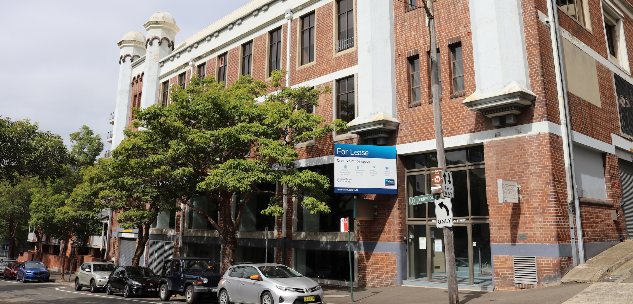When co-working space provider Hub Australia launches its second Sydney site, early next year, its national footprint will have nearly doubled. Founder and CEO Brad Krauskopf spoke to Dynamic Business about his vision for Hub Hyde Park, a 4200 square metre space at 223 Liverpool Street. He also discussed his future plans for Hub Australia and shared his predictions on the future of the co-working movement.
DB: How would you quantify the success of Hub Australia to date?
Krauskopf: We’ve been pioneering co-working in Australia since 2010, when we open our first site at Donkey Wheel House in Melbourne. From that time, the business has grown to four locations across Sydney, Melbourne and Adelaide, including Hub Hyde Park at 223 Liverpool Street, which will be our second Sydney site after Hub William Street. The new site will bring our Sydney footprint to over 5000 square metres and over 10000 square metres nationally.
In terms of members, we’ve seen strong growth yearly and currently have over 1,100 Hub Australia members nationally – an innovative and inspiring community we are really proud of! Once Hub Hyde Park opens we expect to support 2,000 members. Beyond the space and customer service, the main reason for our growth has been our focus on helping members grow their business and attract and retain staff.
DB: What motivated you to launch a second space in Sydney’s CBD?
Krauskopf: We’ve experienced strong demand for co-working space from the Sydney business community and, with a tightening office market and changing work practices, there is an appetite for flexible and well-designed office space. Australians recognise the various benefits of co-working – for instance, they are customisable and can adapt as our business grows, there are opportunities to further business and personal networks. Furthermore, they are an inspiring place to work and also bring clients.
DB: What’s your vision for the new site and have you had any sign-ups?
Krauskopf: We’re passionate about helping businesses grow. We want to create an engaged community at Hub Hyde Park which will help our members grow their businesses and skills. The site will feature state-of-the-art design and facilities including an event space, parents room, gym relaxation space and parking. Additionally, members and their guests will have access to a private roof top terrace and a licensed café with views over the park and the surrounding city.
We’ve had a number of expressions of interest, which is fantastic this early in the process and we hope to reveal some of the exciting businesses that will call Hub Hyde Park home, later this year.
DB: How are you responding to a growing number of co-working services?
Krauskopf: Hub Australia is the local co-working pioneer and we’ve been at the forefront of the sector’s growth in Australia, which I believe has given us unique insight into what Australians need from a co-working space. We look at overseas trends and interpret them for the local landscape, and our mission is to create a home for growing businesses.
Our main point of difference is our focus on growing businesses, this is most often recognised by our members who highlight that Hub Australia is key for the attraction and retention of staff. This focus flows through to how we design and manage our spaces, and how we build and nurture the company. We don’t measure success by size, but strive to create an engaged community through a diverse member base, inspiring and flexible work environments and creative member programming. This in turn propels business growth for our members.
DB: For a co-working space to succeed, what are some ‘must-haves’?
Krauskopf: I believe a co-working space needs to have an engaged community at its core and what helps drive this is inspiring but functional design, a diverse member base, a vibrant culture and a central location with good transport links. I also see member programming as a must. We find our regular business, networking and social events for members encourage connection and collaboration.
DB: How has co-working evolved? What will the next evolution look like?
Krauskopf: While co-working spaces were initially used just by freelancers and start-ups, we are now receiving more enquiries than ever before from large companies and corporates. At our Hub Southern Cross space, which opened late last year, Australia Post took significant space for its Innovation Team to connect with growing businesses. Sensis and Suncorp have also chosen to base teams at Hub Southern Cross, and Hub Hyde Park will include the provision of several spaces specifically designed to meet the needs of corporate teams.
I expect the next evolution of co-working will see growth beyond the co-working space. Organisations will look to ways that they can bring co-working spaces into their own corporate headquarters and multi-tenanted corporate towers.
B: What about the next evolution of Hub Australia – what will that look like?
Krauskopf: We’re currently focusing on securing further locations in Melbourne and Sydney and establishing a space and community in Brisbane. In the coming year our members will also see expanded learning, wellness and social programming, and the introduction of member services that support their growth.
See also: Diverse co-working ecosystems generate innovation and huge amounts of B2B trade

